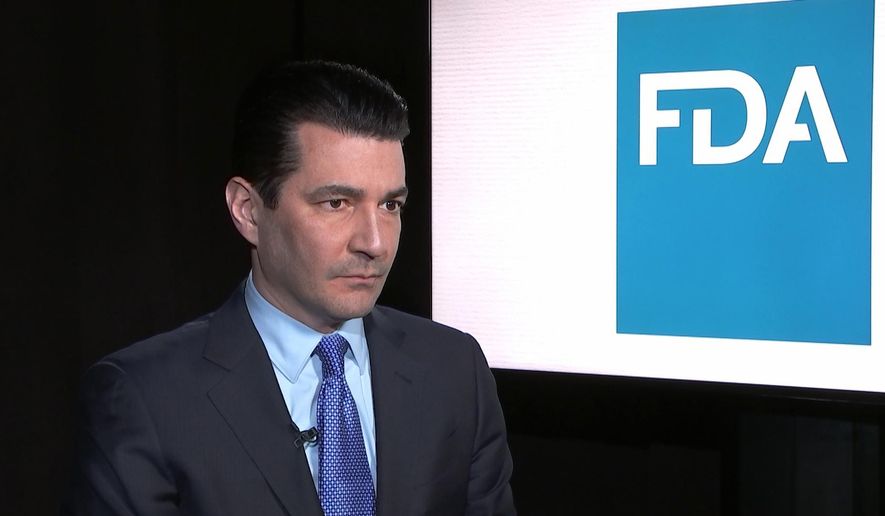Moving to implement President Trump’s drug-pricing plan, the Food and Drug Administration on Thursday started naming brand-name drug makers who shut out competition by preventing generic makers from obtaining samples of their product.
FDA Commissioner Scott Gottlieb said a generic manufacturer typically needs 1,500 to 5,000 units of the brand drug to perform the tests needed to win regulatory approval of their products, yet more than 150 generic drug developers have complained to the agency about tactics that shut them out.
The FDA published the names of dozens of companies that have potentially been blocking access, saying sunshine is need to change their behavior.
“We hope that this increased transparency will help reduce unnecessary hurdles to generic drug development and approval,” Dr. Gottlieb said.
The FDA said companies are using a variety of tactics to stall the sale of generics.
They may cite the presence of a Risk Evaluation and Mitigation Strategy (REMS) — a program the FDA applies to certain drugs to ensure their benefit outweigh their risks — to refuse distribution, or impose conditions on sales that generic makers cannot meet.
Others brand companies put restrictions in their contracts with drug distributors, wholesalers or specialty pharmacies to prevent those intermediaries from selling samples to generic makers.
“I want to be very clear: a path to securing samples of brand drugs for the purpose of generic drug development should always be available,” Dr. Gottlieb said. “Even in the case of limited distribution programs such as those required by certain REMS, there should be a path forward for generic drug development.”
In many instances, the FDA finds there isn’t even a REMS in place. Dr. Gottlieb said the FDA is notifying also the Federal Trade Commission (FTC), which investigates anti-competitive business practices, about these episodes.
Last week, Mr. Trump outlined a sweeping plan to address rising prescription-drug prices, a leading concern for Americans who will reshape Congress at the ballot box in November.
His top health officials said they plan to move swiftly. That includes moving doctor-administered drugs from Medicare Part B, where there is no negotiation on price, to Part D, where private plans can secure discounts.
Mr. Trump also wants drug companies to disclose the list price of their drugs on TV ads.
Health and Human Services Secretary Alex Azar said the changes are far-reaching and practical, deflecting criticism from Democrats who said the Mr. Trump reneged on his campaign push to use the government’s authority under Medicare to directly negotiate down drug prices.
He said that practice, which is common in European countries, wouldn’t save any money unless the government decided to ration drugs.
• Tom Howell Jr. can be reached at thowell@washingtontimes.com.




Please read our comment policy before commenting.